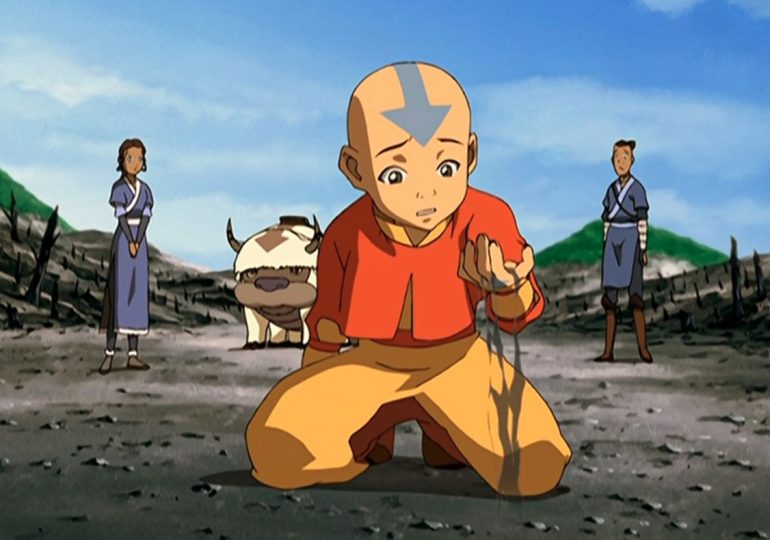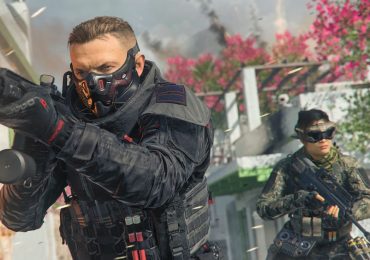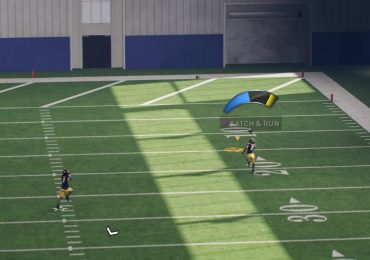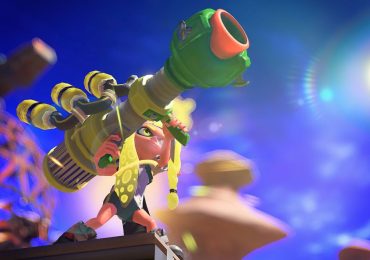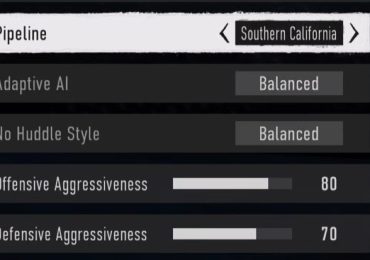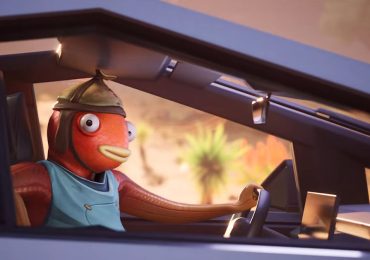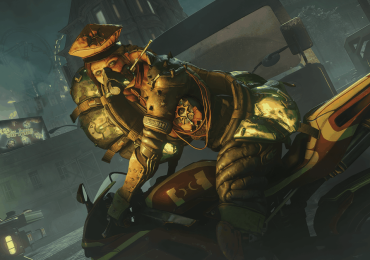Mike Le was furious. Maybe sad? There was a touch of despair. On the morning of Dec. 9, 2008, news broke that M. Night Shyamalan had cast his upcoming live-action adaptation of Nickelodeon’s Avatar: The Last Airbender. Le, then a grad student at UCLA, was a huge fan of the animated series — but Shyamalan’s take for Paramount Pictures looked like a disaster. In his mind, Avatar was an explicitly Asian-inspired fantasy, an Eastern Lord of the Rings with martial arts. So why were all of Shyamalan’s actors white?
Le had felt the frustration all of his life. The big one from the past was Firefly, a show whose characters he loved but that at its core stole “from Asian culture without doing anything in the service of Asian people.” The Last Airbender pushed him over an edge. He carried the fire to a meeting of the activist group MANNA (Media Action Network for Asian Americans), where he and his girlfriend, Dariane Nabor, met another miffed Avatar fan, Marissa Lee, who didn’t just want to commiserate. By 2009, the three fledgling activists, along with a coalition of internet pals, launched Racebending.com, with the express intent of waging a media war.
“The pie-in-the-sky dream was: Stop the presses, waste hundreds of millions of dollars, and get them to recast and reshoot,” Le says over a video call. They knew the goal was unrealistic. Still, where there’s noise, there’s discussion. “If we got enough attention, that would have an impact on how a lot of people saw not just this particular instance of whitewashing, but how they might think about that in the future.”
Today, you can’t swipe across a feed without bumping into a wound-up fan base — TV show groupies, a stan hive, a political cult — and the 2000s pre-social internet wasn’t too different, while spread across an archipelago of message boards and blogs. So the Last Airbender casting outcry could have been mistaken as everyday fan bickering — and almost was, by fans and media alike. But as time would prove, this was no proto-#ReleasetheSnyderCut.
The clear evidence is Netflix’s new series, Avatar: The Last Airbender. The streamer announced the cast of the second live-action reinterpretation in 2021 by specifically citing that the show “would establish a new benchmark in representation” by booking non-white actors for key roles. For fans, it was worth a cheer. But for the folks behind Racebending.com, it was the bookend to an unlikely saga of yelling online, being questioned by the internet, getting waved off by powerful people, and then still doing something about it.
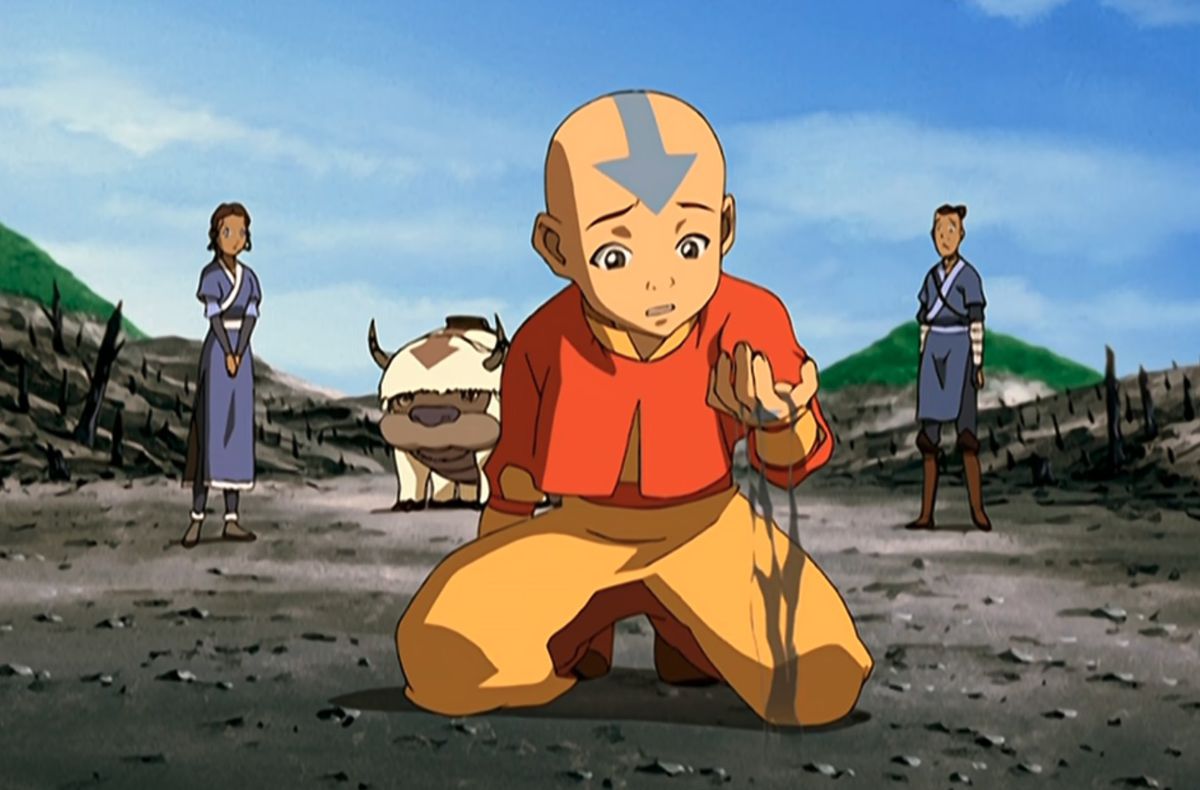
The Last Airbender controversy erupted months before the actual cast was announced. Much like Shyamalan’s discovery of Haley Joel Osment for The Sixth Sense, there was hope that the film could launch the careers of promising young stars. But the casting call for the film’s lead, Aang, included a line that sent Avatar fans up in arms: “Caucasian or any other ethnicity.”
The creative team ultimately went with “Caucasian” across the board. At the time, the lineup included Twilight’s Jackson Rathbone as Sokka; Nicola Peltz, best known at the time as the daughter of billionaire Nelson Peltz, as Katara; singer and Teen Choice Award winner Jesse McCartney as Zuko; and newcomer Noah Ringer, a 12-year-old with a black belt discovered during a casting call in Texas, as Aang.
When the news broke, Benjamin Wilgus was bewildered by the casting choices and, more so, the immediate discourse. The writer-cartoonist recalls the site Fandom Secrets, a hub for anonymous hot takes, exploding with defensive reactions to anyone raising an eyebrow. “Avatar: The Last Airbender is a fantasy!” “Avatar: The Last Airbender does not take place in Asia!” “Avatar: The Last Airbender characters have blue eyes and therefore they can be white!” At the time, Wilgus was deep in the Avatar LiveJournal community and, coincidentally, working on a set of Avatar: The Last Airbender comics for Nickelodeon Magazine. He knew, from adapting the series to the page, how the artists that worked on Avatar drew inspiration from Chinese, Japanese, Korean, and Inuit cultures to amalgamate the show’s four nations. Wilgus tried laughing through the uproar, even designing a “Avatar Racefail” bingo card so Fandom Secrets commenters could “play” at home. But the sour rhetoric got deeper and deeper under his skin.
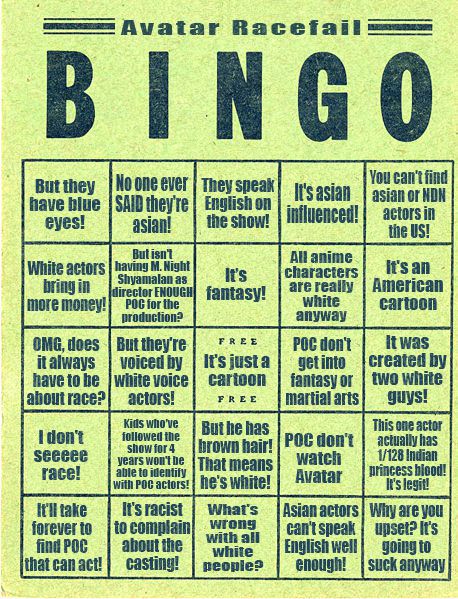
“I didn’t want to fuck over my colleagues, especially as they got me these jobs in the first place, but I was very mad and I was extremely 27 years old,” Wilgus says. So, in “a fever dream,” he spent a night collecting screencaps from Avatar: The Last Airbender that would effectively serve as a box of evidence for anyone walking into a comment debate. An increasingly anxious Wilgus posted the grid on a LiveJournal created just for the occasion: the aptly named “Aang Ain’t White.” The platform lit up.
Created by Michael Dante DiMartino and Bryan Konietzko, Avatar: The Last Airbender looked nothing like surrounding Nickelodeon programming when it premiered in 2005. Between mythical serialized drama, fight choreography designed by martial arts professionals, and hand-drawn animation from Korean animation studio JM Animation, Airbender’s Eastern specificity made many wonder if the series qualified as “anime,” despite being a Western production with three white, English-speaking lead voice actors. The praise led to more critical consideration, a debate Shyamalan’s film only exacerbated: Did a tradition of mukokuseki, the Japanese trope of rendering animated characters without discernible ethnicities, leave the race of Airbender’s characters up to interpretation? Or was the show inherently problematic in how, as one LiveJournaler put it, “the world and its cultures do not code as Asian, but as more in the vein of white Orientalism. It’s characters putting on Asian costumes in an exotic Asian world, for white people”?
But big-picture questions about authentic identity and Asianness didn’t deter Aang Ain’t White supporters from campaigning on what turned out to be a much simpler point: Source material be damned, an ATLA movie was an opportunity to elevate Asian or Asian American actors because of its cultural roots. Paramount Pictures cast white actors instead. Enough people agreed: That sucked and the studio was going to hear about it.
In late 2008, Loraine Sammy, a prominent voice in fan spaces who teamed up with Aang Ain’t White early on, posted an elaborate guide to writing protest letters aimed at The Last Airbender producers Kathleen Kennedy and Frank Marshall. (“Remember, the key is to not sound like a douche,” she stated at the top of the post.) The call to action gripped Marissa Lee, who spent high school years writing politicians on behalf of Amnesty International and reading up on the history of yellowface on places like the Angry Asian Man blog. She was particularly inspired by the theater actors and the Actors Equity union protest of Miss Saigon’s use of yellowface makeup on Jonathan Pryce, who played the mixed-race pimp the Engineer. While Pryce ultimately won a Tony for his work in 1991, he quickly stepped down from the role and producers of the musical vowed to only cast actors of Asian descent in future productions. The Last Airbender, Lee thought, might turn out to be a similar inflection point for on-screen whitewashing.
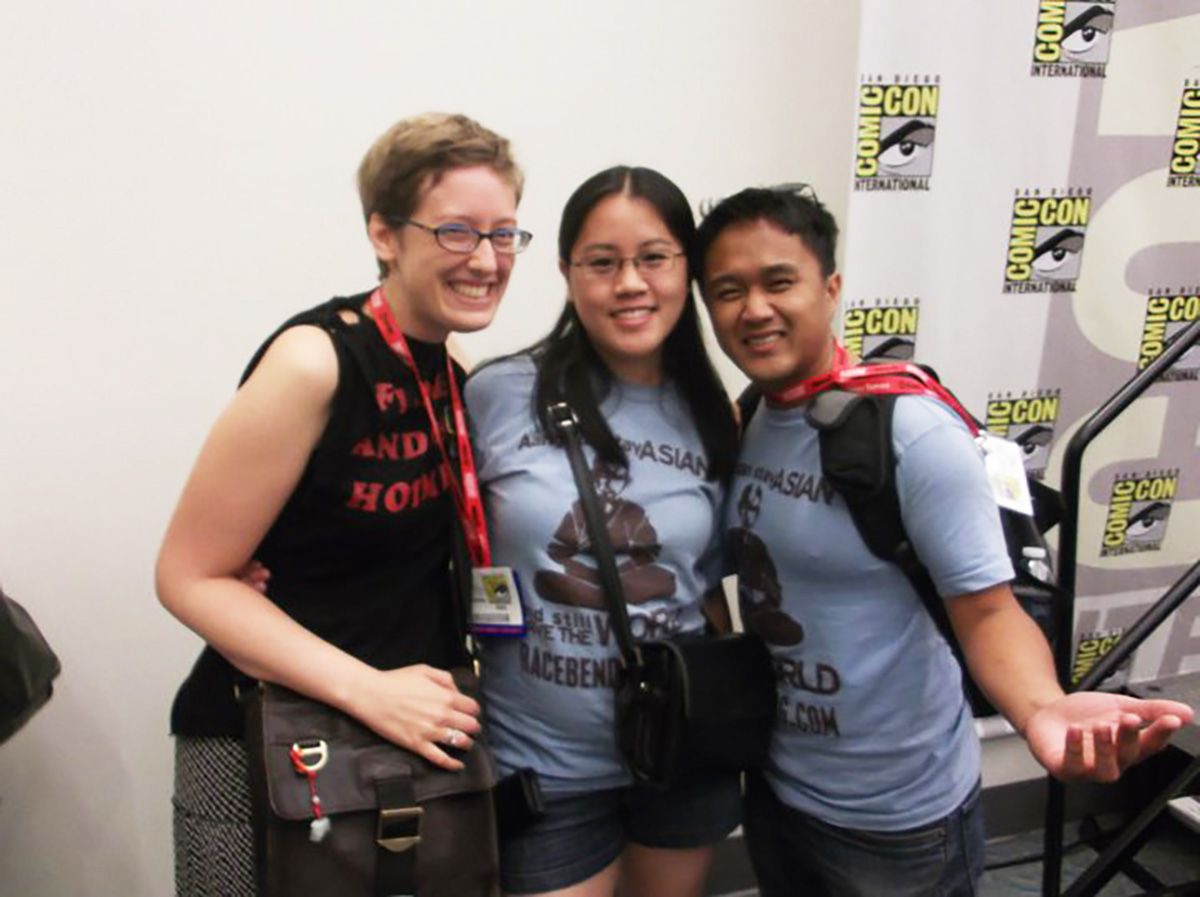
Her first job was creating basic Aang Ain’t White press kits to ship out to any media organization that might catch wind of the letter-writing campaign. And even in LiveJournal form, it was blowing up. In a blog at the time, American Born Chinese cartoonist Gene Luen Yang endorsed the Aang Ain’t White campaign, writing, “By giving white actors roles that are so obviously Asian — and by stating from the get-go their preference for Caucasians — they tell Asian-Americans that who we are and how we look make us inherently inadequate for American audiences, even in a movie that celebrates our culture.” (Yang would later work with DiMartino and Konietzko on graphic novel sequels to Avatar: The Last Airbender for Dark Horse Comics, but said he skipped the Last Airbender film.)
The endorsement from Yang came as The Last Airbender production seemed to react to Aang Ain’t White’s action. In January 2009, a Philadelphia casting call for background extras broadened language beyond “Caucasian or any other ethnicity” to a more general ask that added “dress casually or in the traditional costume of your family’s ethnic background.” The Last Airbender’s extras casting director Deedra Ricketts tried to clarify the ambiguous ask ahead of the auditions in an interview with the Daily Pennsylvanian: “If you’re Korean, wear a kimono. If you’re from Belgium, wear lederhosen.”
Then, on Feb. 2, 2009, Variety reported that Slumdog Millionaire actor Dev Patel would star in The Last Airbender, taking over the role of Zuko from Jesse McCartney. The report made no mention of the fan backlash, but Shyamalan offered an explanation for the change: “Jesse had tour dates that conflicted with a boot camp I always hold on my films, and where the actors here have to train for martial arts.” The Aang Ain’t White group was happy to hear it — and not at all satisfied, issuing a detailed breakdown two days later of why the production was in no way off the hook. At that moment, Lee and Sammy were ready to go bigger. Wilgus was happy to hand off the baton.
“Aang Aint White was like a kind of liminal space while folks were getting their ducks in a row,” Wilgus says. “And, I will say, one of the things that made me very uncomfortable was not only my professional association, but honestly, I’m some fucking white person. And while I felt very certain of my convictions, it definitely felt like the minute there was a group of people for whom this was personal, and their thing to not only do something about but decide what they wanted to do and what they wanted their messaging to be, I was very happy to be like, Great, yes, please take all the stuff that I’ve done that’s useful to you, build your own website, have your own thing, let me know if there’s anything I can do to help.”
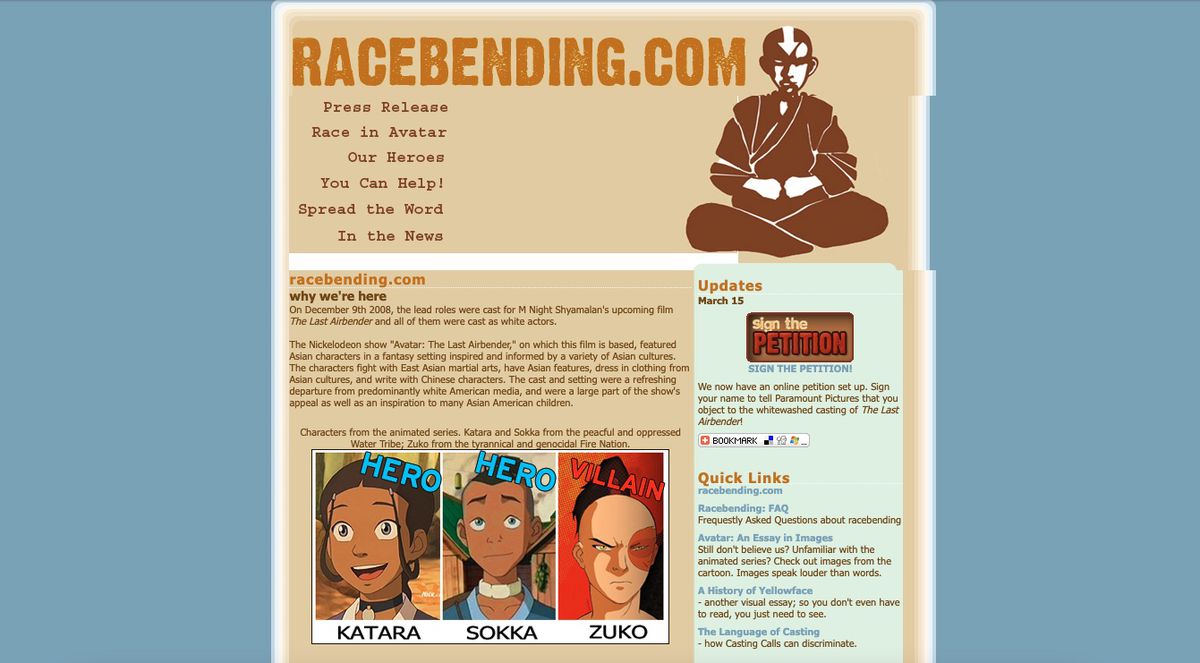
The first order of business: a new name. To the new stakeholders, “Aang Ain’t White” was provocative but limiting; Aang wasn’t the only whitewashed character and, as Lee puts it, people at the time were still “uncomfortable with naming whiteness.” There was also a chance, if mobilized correctly, that the conversation wouldn’t end with The Last Airbender. Lee is happy to take a victory lap today in her choice of “Racebending,” a nod to the “genderfuck”/”genderbend” practice in fanfiction that invoked the elemental abilities of the Avatar world. Racebending was firmly a pejorative when Lee and Sammy launched the website in the spring of 2009, a red flag for any instance of a corporation bending characterization to the white identity. But, in a testament to the work that would soon be done, 14 years later, “racebending” is fan nomenclature for any reimagined casting choice. Today, shows like Bridgerton and Interview with a Vampire earn praise for boldly racebending a potentially faithful but homogenous cast to make space for talented people of color to shine.
In the months to come, the growing team at Racebending.com continued to coordinate, train, and pound away. Lee and Sammy continued to create content for the site, breaking down academic studies on Asian and Asian American representation for internet-kid reading and talking to experts ranging from racial discrimination lawyers to the NAACP who could supply them with facts to fuel the movement’s appetite. They militantly tracked casting updates and word from set. When Mike Le and Dariane Nabor joined the fray, the LiveJournalers had the front-facing extroverts they needed to take the protest to the ground. Asian American media firms offered media training, preparing Le for what would be regular appearances on TV and radio leading up to the film. He and Nabor were also motivated to take their soapboxes to the streets. At the 2009 San Diego Comic-Con, the two papered the Nickelodeon booth in Racebending fliers, wrangled petition signatures, chanted on the convention floor, and even showed up to a signing with DiMartino and Konietzko in Racebending garb. But at the end of the day, the group’s loudest demonstrations were conducted in comment sections.
“There wasn’t a single major article online about the movie that did not have some Racebending supporters down there, saying, This is not OK, you guys should not have done this,” Le says. From major newspapers to micro-geek blogs, followers of Racebending.com had their marching orders and operated with precision. Polite precision. “Keep your cool,” read one Racebending post. “If you come off as angry (Season 1 Zuko!), they have yet another excuse to dismiss you. Make your points calmly and confidently.” And they did. Poking around the archived internet, and having learned about the organization in the comments of UGO.com, where I worked at time, Le’s expansive claim that their commenters were everywhere is accurate. Many blistered at the aggressive nature of the campaign.
“Every time I post something about The Last Airbender, someone brings up the fact that the movie is insanely racist, that Aang and the other characters are clearly of ethnic origin, and the fact that they hired a white kid as the star is a travesty. There’s even talk of boycotting the movie,” Rob Bricken wrote in a 2010 trailer write-up on the now-defunct site Topless Robot. “You guys need to settle down, because there is no way that Hollywood would have ever, ever cast anyone other than a white kid as Aang. I think your heart is in the right place, and I think this is a discussion worth having, but you guys need to stop losing sleep over this.”
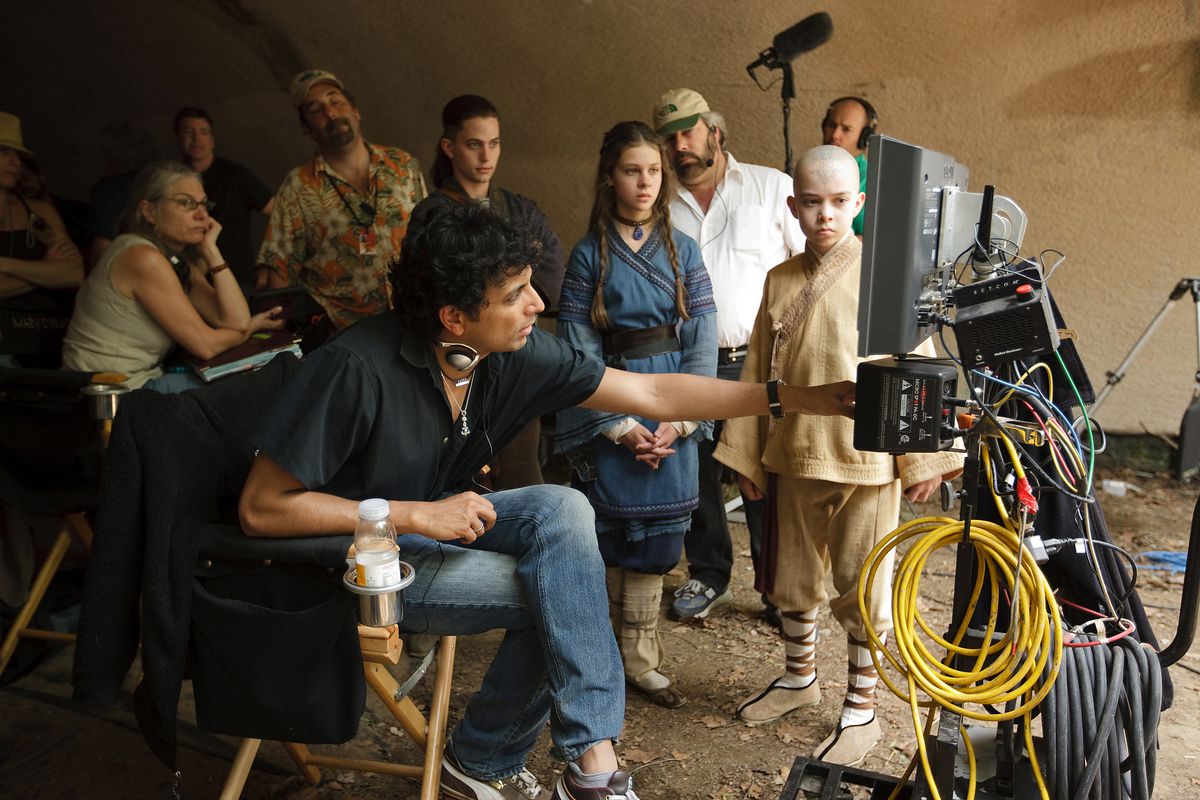
Unlike the cordial letter-writing campaign, Racebending.com’s spam effort provoked responses of increasing legitimacy. The Los Angeles Times commissioned columns based on their own comment sections. Roger Ebert took on the question of the controversial casting in a June 9, 2010, edition of his “Movie Answer Man” column, siding with the cause. “If I’d been making The Last Airbender, I would probably have decided the story was so well- known to my core audience that it would be a distraction to cast those roles with white actors.” And while Le appeared on countless TV and radio broadcasts evangelizing Racebending.com’s message on whitewashing, the needle ultimately moved in his conversations with so-called “fan press.” When Shyamalan hit the press tour with The Last Airbender, a few geek blogs with dedicated journalists at the helm were equipped to ask the questions Racebending.com and fans of the series wanted answered.
When pushed to comment during an early press roundtable for the film, reported by io9 in March 2010, Shyamalan immediately landed on Avatar: The Last Airbender’s third rail. “The great thing about anime is that it’s ambiguous,” he explained, saying that his daughter always saw herself in Katara growing up, but that didn’t mean Katara was Indian. So when it came time to cast The Last Airbender, his focus was exclusively on talent.
I was like, “I don’t care who walks through my door, whoever is best for the part. I’m going to figure it out like a chess game.” Ideally we separate the nations ethnically — ideally. I didn’t know how or what it was going to be. And it was so fluid. For example if you found a great brother, [but] he didn’t go with my favorite Katara, then we couldn’t use him. Theoretical things like that. There was an Aang that we really loved, but he was like 5’10.” There’s all kinds of issues that come to the table physically. And I had a board of all the people that I was considering, the seven or eight. There was, at one time, a Chinese Sokka and Katara, and they were over here. One of them was a better actor than the other, and so I was gathering my pros and cons.
I was without an agenda, and just letting it come to the table. Noah is a photo double from the cartoon. He is spot on. I didn’t know their backgrounds, and to me Noah had a slightly mixed quality to him. So I cast the Airbenders as all mixed-race. So when you see the monks, they are all mixed. And it kind of goes with the nomadic culture and the idea that over the years, all nationalities came together.
Shyamalan capped his case for the film’s individual casting choices by looking to the future: Not only were his casting picks sound, but the plan for the theoretical Last Airbender trilogy would “more so than the show, [have] much more diverse ethnic backgrounds to it.” He promised Toph, a character who debuted in season 2 of the animated series, would be Asian in the sequel, while the Earth Kingdom would have a large Black population. “It’s not an agenda for me,” Shyamalan said of his diverse cast, “but it’s something I’m super proud of. That when my kids or any kids look at it they will see themselves.”
While Shyamalan’s position as one of the most well-known directors of Indian descent working in Hollywood today may have created a strange wrinkle in the race-focused dialogue around The Last Airbender, Lee says it never gave them pause during the campaign. “I don’t think you have to be white to enact or make a choice that could have a racist result.”
(Representatives for M. Night Shyamalan did not respond to requests for additional comment.)
Shyamalan’s defense landed with a thud, generating even more attention for Racebending.com’s case. While no one involved with the movie ever contacted the site to talk through the issue, Le says Paramount did eventually reach out — to invite Racebending.com members and other Asian and Asian American activists to a special screening of The Last Airbender. “It was… a very uncomfortable experience,” he says with a wince. When Le and others arrived at the screening, two younger Paramount representatives greeted them at the door, and “one of them was drunk,” Le says, or completely off the deep end. There was no conversation about the protest, just a cordial thank-you for attending. “When the movie started, I thought we were being trolled,” he says. “I thought they were making fun of us, because… it was so bad?”
On July 1, 2010, The Last Airbender premiered in theaters. The Racebending.com street team planned on protesting the Hollywood premiere weeks before, but there wasn’t one (Paramount opted for a smaller splash in New York City). Instead, a picket line formed outside the famous Cinerama Dome on release day. They chanted, banged drums, and crossed a finish line — with the movie out, the campaign was effectively over. But there was no post-show party or popping of champagne (though they did grab dinner).
“We didn’t slow down,” Lee says, “because there was still work to be done.”
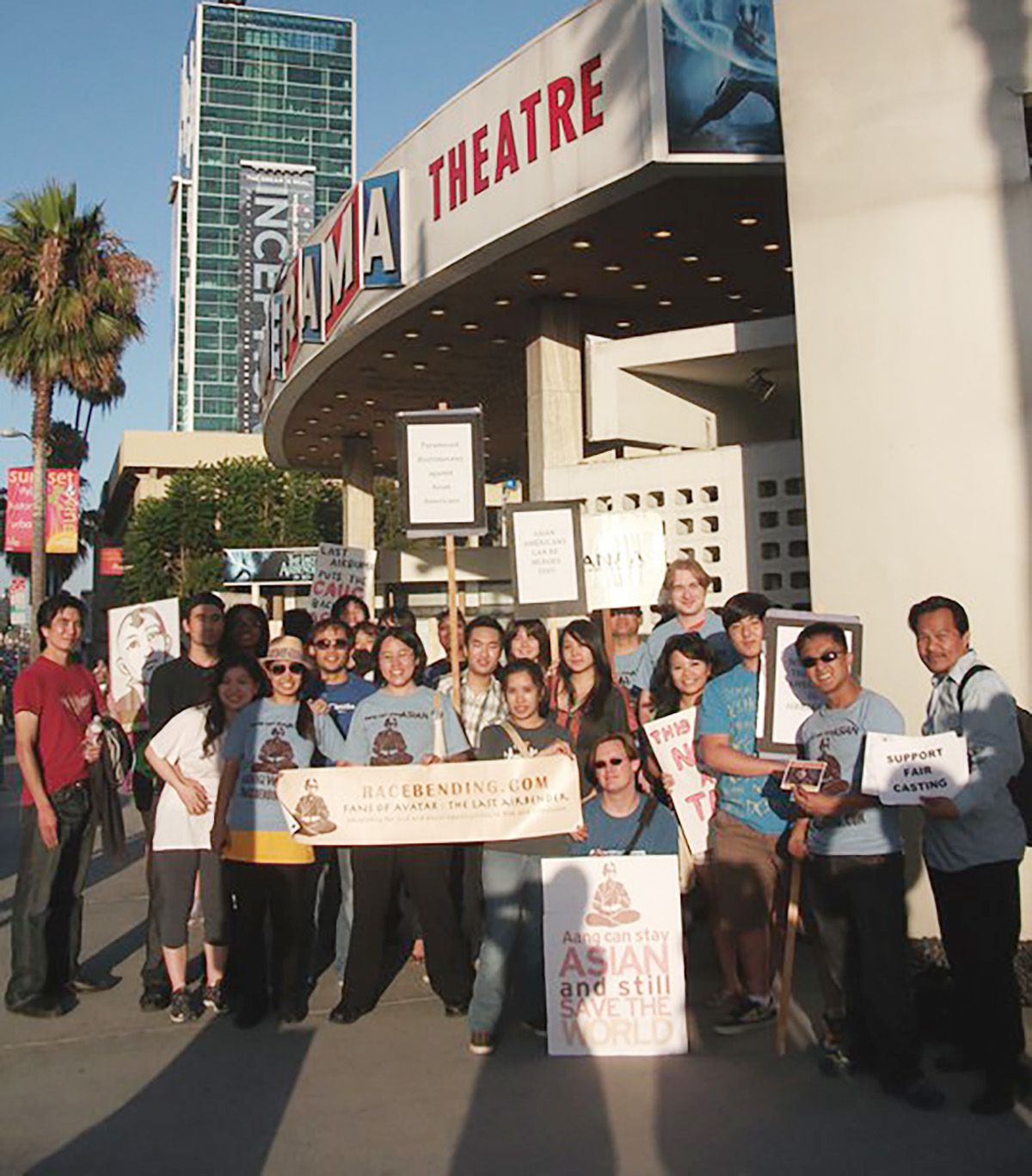
The release of The Last Airbender was, in a way, anticlimactic. Racebending.com didn’t defeat Goliath in a grand showdown, but Goliath didn’t triumph either. Shyamalan’s film was lambasted by critics (holding a mere 5% on Rotten Tomatoes at the time of publish), came in No. 2 under the Twilight sequel Eclipse, and grossed $319 million worldwide on a reported $150 million budget. “If we do this right, it could become our Harry Potter,” Nickelodeon president Cyma Zarghami proclaimed in 2007 when the deal was first struck with Shyamalan to direct an Avatar trilogy. Three years later, any hope for sequels was immediately gone, although few were hoping. The Racebending team felt vindicated — and saw a future that was much clearer than the franchise’s.
“It helped a lot that the movie was terrible,” Le says. “I think [the protest] would have been much more controversial if it had been a great movie somehow — aside from all the whitewashing. […] But we felt like we had had some impact on the national discussion. And in the years after it, it certainly felt influential in how subsequent casting controversies were handled by Hollywood media.”
Where Racebending.com pointed, readers would go. In the fall of 2010, the group directed its energy at Marvel Studios to address vague casting requests for its Hulu adaptation of Runaways and remain faithful to the Asian American identity of a key character — and Marvel quickly responded. The next year, the group aligned with Hunger Games fans who hoped Katniss’ racial ambiguity in the books might lead to diverse casting choices, only to see hopes dashed when main District 11 players were white. (Heat around the conversation was strong enough that Lee recalls receiving a call from a person involved in The Hunger Games production hoping to quell the ire.) Warner Bros. Pictures also met with Racebending.com and other nonprofits to discuss why a proposed Akira adaptation announced in 2011, which had names like Robert Pattinson, Andrew Garfield, Michael Fassbender, and Justin Timberlake in the mix for the leads, was such an issue for the activists. As of publication, the Akira movie still hasn’t happened (but Warner Bros. Pictures would produce Crazy Rich Asians a few years later).
The post-Airbender Racebending.com was not just out to prevent whitewashing, but educate the industry. The full-blown media operation published regular news reports, educational materials on the topic of whitewashing and representation, and held annual San Diego Comic-Con and New York Comic Con panels to promote Asian and Asian American topics. The rooms were always packed, recalled Le, and unlike the scene around The Last Airbender, wholly positive.
“I definitely wanted to keep doing the convention circuit [after the movie release] because the energy at the panels was always really positive. At the time, there was not a big Asian American space in San Diego Comic-Con or New York Comic Con. I thought it was important that there was a space for Asian Americans at that convention. […] And I couldn’t really explain why or articulate why, but every time I was in the room, the room would be packed, and you just see the expressions on people’s faces. People would be so happy just to be there to talk about this unique experience of loving media, American media, as an Asian American fan. It’s complicated.”
But Racebending was always a passion project. The founders had day jobs, higher education to juggle, and lives offline. And as they grew older and drifted away from the LiveJournal fan communities that had cut their teeth, the site lost steam. Le says the COVID-19 pandemic shuttering the 2020 San Diego Comic-Con was a final blow for the organization.
“I feel old saying this, but I think it’s a young person’s game,” Le says. Long broken up from Nabor and living a professional life in his 30s, the software engineer admires those who made lives out of activism — he loved it when he could give it his undivided attention. Marissa Lee tells a similar story of concentrating on family and therapy practice, drifting away from the day-to-day at Racebending.com, and losing touch with Sammy, whom she had never met in person. There was a hope that maybe a fresh generation of activist fans could take over the site, though by the time they considered finding successors, the era of actual dot-com destinations had been replaced by Twitter, Reddit, Discord, YouTube, and TikTok. At some point, no one knows exactly when, the Racebending.com domain name lapsed, only to be poached by a Google-spammer that churns out keyword content created by anonymous authors to be read by no one.
But the impact of the site remains. According to a February 2023 study by the USC Annenberg Inclusion Initiative, the prevalence of underrepresented leads or co-leads in films has significantly increased over the last 15 years. In 2010, 11% of the 100 top-grossing movies featured an underrepresented lead or co-lead. By 2019, the average has remained closer to 30%. The Asian on-screen representation in that time period has risen from 5% to over 21%.
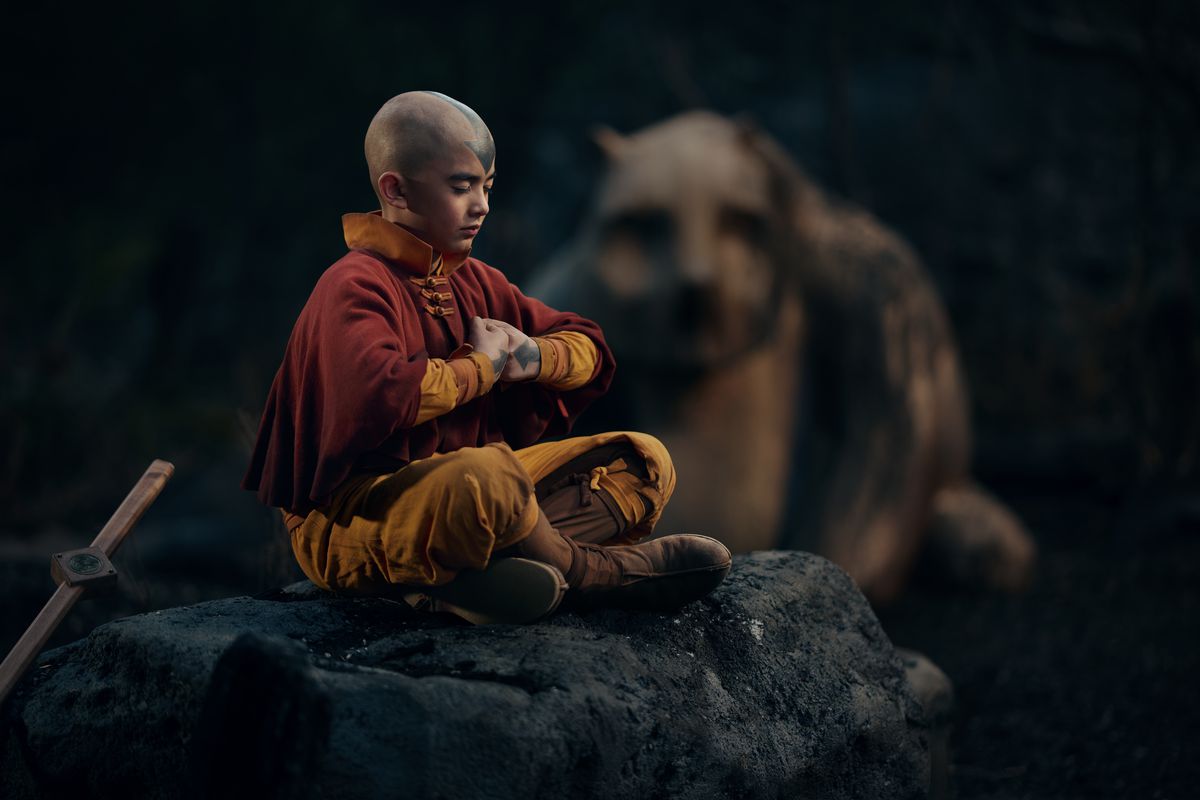
Netflix’s Avatar: The Last Airbender aims to counter the frustration of the Shyamalan movie by appealing directly to fans of the animated series through pronounced, racially aware messaging (and hopefully a good version of the story, too). The attempt, those involved with Aang Ain’t White and Racebending.com all agree, is validating. But whether it’s good or bad is almost moot — that’s how far things have come. While the anti-racist campaigns were valuable in changing Hollywood’s tune on authentic, diverse casting, for Marissa Lee, fans are more in control of what they want to see than ever, thanks to fan works and the social internet. While she wants to see representation on screen, she isn’t waiting for studio executives to do the right thing. And it may be impossible to do now what the team did then; as Lee also notes, with exasperation, all of Racebending.com’s tactics have been co-opted by bad-faith fans who think The Last Jedi was as much of an injustice to Star Wars fans as The Last Airbender movie was to Asian and Asian American ATLA fans.
“We can’t wait for Hollywood to validate us. People on the margins, we can agitate, and shake the tree and hope that Hollywood drops some fruit, but you know, we also can be empowered to create our own stuff, our own representation. It’s just as meaningful and just as valuable,” she says.
As for Mike Le, previously mad online, he’ll watch with comfort. In his mind, he lives in a world in which Asian and Asian American people are “marketable” leads and worthy of casting in major motion pictures when the material offers an opportunity, even if there’s still plenty of work to be done to even the playing field. (A recent win: Universal recently cast Hong Kong action star Donnie Yen in a big-screen take on the infamously whitewashed TV series Kung Fu.)
“When I was growing up and even up into 2008, it felt like every project that had Asian people in it, or could potentially have Asian people in it, was super high-stakes because we were jostling over breadcrumbs,” Le says. Now he feels he can actually love — or hate! — any media without a social justice cloud looming over the experience. “A lot of white people kind of take for granted that if a show comes out headlining someone of your racial background, you can be like, ‘I don’t want to watch that,’ or even say ‘That movie sucks.’ Having the freedom to be able to say that out loud is so nice.”
